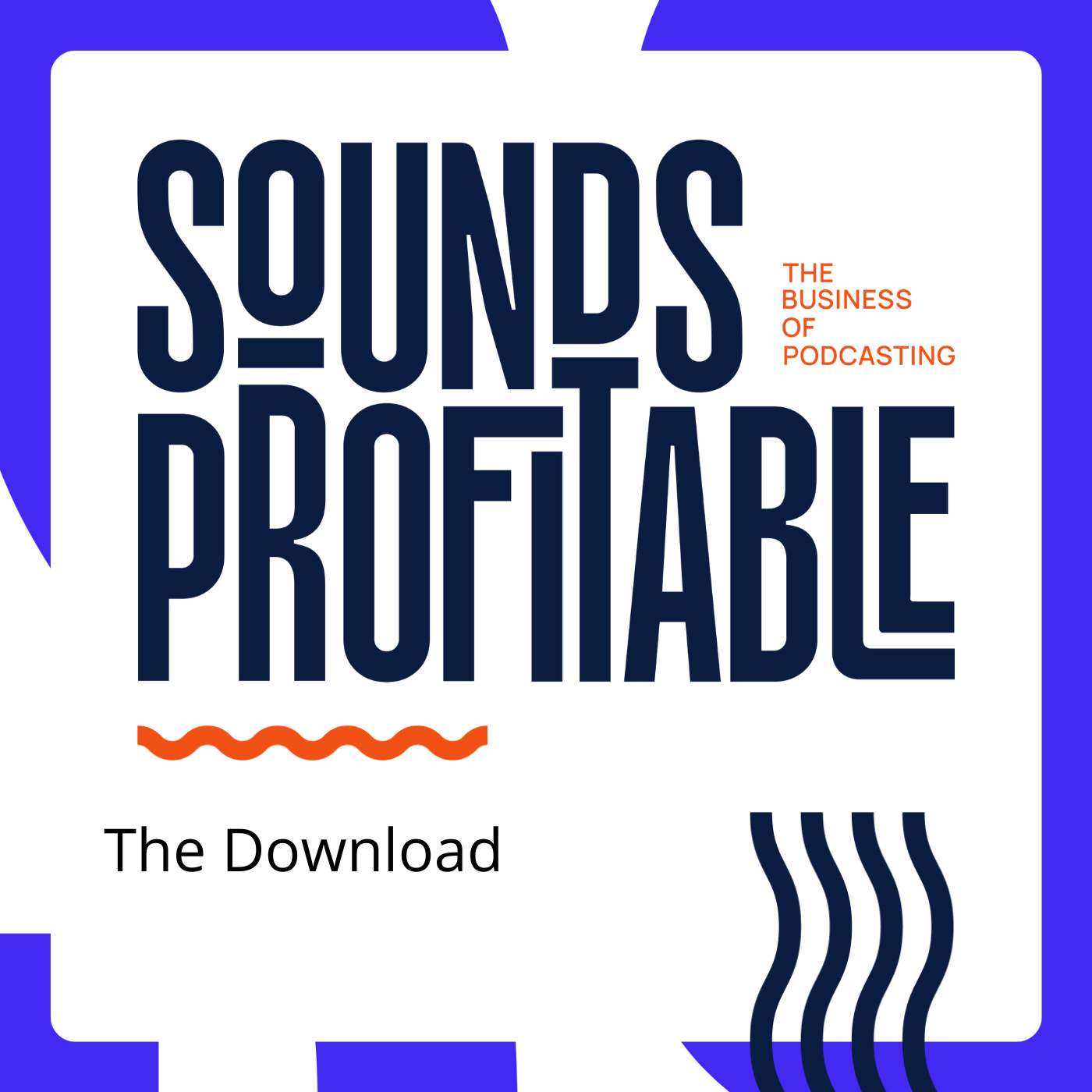Manuela: This is The Download from Sounds Profitable, the most important news from this week and why it matters to people in the business of podcasting. I’m Manuela Bedoya.
Shreya: And I’m Shreya Sharma.
Manuela: The Download is brought to you by Magellan AI. Track the trends in spend, ad load, podcasts on YouTube, and more with Magellan AI’s advertising benchmark report for Q4, available now. You can find a link in the description or visit Magellan dot AI.
Shreya: This week: AMERICA bill aims to regulate big ad tech, Q1 Ad Revenue Better than forecasts (but not by much), and a deep dive into podcasting in Korea.
Let’s get started:
Manuela: Last week was a busy one in regards to congress and the tech field. In addition to asking the CEO of TikTok if the app has access to wi-fi networks or tracks users’ pupil dilation, a new bill has been introduced in Congress to rein in big tech.
The bill is effectively a rebranded version of the Competition and Transparency In Digital Advertising Act, which did not reach a vote last year. Now, with a renewed interest in big tech in the news cycle, the act is back with a catchier name. This time around it’s known as the Advertising Middlemen Endangering Rigorous Internet Competition Accountability Act, or AMERICA if you ignore the extra A. Definitely flashier branding than CTIDA.
The bill’s author, Utah Senator Mike Lee, aims to rein in big tech with the elimination of conflicts of interest. Under the current version of the bill, any company making more than $20 billion per year would be forced to divest any assets that allow them to own more than one part of the digital ad ecosystem. DSPs cannot own an SSP, and vice-versa. Buyers and sellers of digital advertising would be banned from owning either. From Alyssa Boyle’s coverage in AdExchanger:
“But companies that make at least $5 billion from digital advertising would have to disclose the revenue streams of their individual business units, such as media selling and ad serving. This transparency requirement casts a somewhat wider net and would impact more tech companies than just Big Tech kahunas like Google or Meta.”
As Boyle points out, the $5 requirement would create a middle-class of companies like Microsoft who make significant money in digital advertising, but don’t own enough to require selling off parts of themselves under strict supervision from the Department of Justice.
As mentioned, this bill didn’t get enough traction last year. Now, with the TikTok CEO interview and an attempt to pass the RESTRICT act, there might be enough buzz in the air to drive more interest this time around. Lee says he’s bipartisan support from multiple senators from both political parties to bring regulation to big tech. If the bill were able to get enough support and be voted on before Congress adjourns, the biggest consequence would be Google divesting assets it likely would have to divest if it loses the upcoming FTC anti-trust case.
So, while there’s a lot of news whirling around about tracking, bans, and upcoming legislation, rest easy knowing the AMERICA Act would likely not impact podcasting much, if it ever comes to fruition in the first place.
Publishers Find Q1 Less Scary Than Anticipated
Shreya: This week Digiday writer Kayleigh Barber took a look back at one of the scarier publisher and podcast antagonists in recent memory: Q1 2023.
Okay, perhaps that’s an exaggeration. But there was a fair amount of doom-and-gloom reporting back in Q3 and Q4. Anxieties of waiting for a recession that may or may not ever arrive lead to fear of the near future. From Barber’s article:
“For most of January, many publishers shared the very bleak experience of being behind 10-25% in their ad forecasts for the quarter. Now that March is over, publishers are surveying their wounds and finding that while ad revenue was indeed down, the numbers aren’t as bad as once predicted.”
Though the numbers are looking solid for Q1, some atypical behaviors have lead to being a strange one for some. Industry Dive of CEO Sean Griffey compared Q1 to hosting an open house to sell a property, but the majority of attendees had no intention to buy. From the article:
“I have never seen such a weird quarter as in lumpiness. You’d be up like, ‘Oh, we got this great deal in, let’s start working on it.’ And then everything got pushed, pushed, pushed, and now it’s in the second quarter.”
That so-called lumpiness is hopefully on the decline. In regards to budgets for programmatic advertising, publishers told Barber they anticipate budgets frozen out of an abundance of caution will begin to thaw by this summer.
So how has Q1 affected podcasting specifically? As reported in yesterday’s issue of Podnews, AdvertiseCast has published their monthly average CPM results for March. Coming in at $22.17, March’s number is just under a 1% increase from February. Not a stunning double-digit number that grabs headlines, but an increase is an increase. Back in December Q1 looked pretty daunting and publishers came out the other end just fine. The same can be said for podcasting.
Korea: A podcasting deep-dive
Manuela: The newest issue of Guan Jin YEO’s series of articles on podcasting in East and South East Asian podcast markets was published late last week. This time around he takes a look into the podcasting ecosystem in South Korea.
According to GWI data, the weekly reach of podcasting is just 10% of the population. Of the podcast-listening public, the demographic split evenly between under-44 and 44+. 57% of listeners are male.
YEO charts a rise and fall of the South Korean podcasting scene, using the inflection point of a popular comedic politics discussion podcast as Korea’s Serial. While Serial lead to true crime dominating charts in the United States, a popular political commentary podcast started in 2011 forged the way for podcasts to become widely perceived as a way to produce politically-charged shows, educational content, and comedy content.
The deep dive tracks a rise in podcasting from 2011 to 2016, with a noticeable falloff due to an uncertain future regarding legislation and censorship for podcasting and a lack of monetization. From the article:
“Podcasts in Korea never seemed to figure out how to make money creatively – which makes sense because politics isn’t exactly the most brand safe of topics. The wealthiest podcasters are those that were picked up by traditional media, and given a booth to air their thoughts legitimately. Unless you can hold enough events, you aren’t going to get it through brand deals, nor audience donations.”
In the interest of disclosure, as it’s listed in the article proper, it should be noted that the narrative of South Korea’s podcasting climate presented in the article closely follows that of podcast-listening app Podbbang. The parent company’s content business team leader is listed as a contributor to YEO’s article.
While the narrative may not seem as inviting as previous entries, it’s worth noting the last edition covering Japan featured far more bleak GWI population statistics. From YEO’s reporting, South Korea sounds like anywhere else in the world with a small podcasting market. Room to grow exists, but the listening public will need help reframing the idea of what “a podcast” can do beyond the existing norm.
Lest we forget the prehistoric era of before 2014 where the average person would associate the term ‘podcast’ with comedians emulating morning radio chat shows.
Podcasting is growing globally, and some markets will require more cultivation to keep growing.
Shreya: Finally, it’s time for our semi-regular roundup of articles we’re calling Quick Hits. These are articles that didn’t quite make the cut for today’s episode, but are still worth including in your weekend reading. This week:
Submissions for the Digiday Media and Technology awards are approaching their regular deadline of May 11th. If you’re interested in submitting a podcast to either category, use code soundsprofitable, all one word and lowercase, to take $100 off your submission fee.
Rococo Punch launches RP Labs, a vertical dedicated to continuing education audio experiences. Rococo RP Labs announcement
Audio Insurgent author Eric Nuzum published the text of his seven minute Radiodays Europe speech on market saturation in audio. The speech makes a bold statement: market saturation doesn’t exist for podcasts created by genuinely motivated production teams.
Adthos launches self-service AI-generated audio ads for radio, podcast, and streaming. Starting Tuesday, users of the Adthos platform now have access to the ability to generate an audio ad creative from scratch entirely using AI tools, from the script to backing music.
TuneIn adds 120,000 audiobooks to premium service, by Matthew Keys. Audio streamer TuneIn has now added a sizeable library of audiobooks. Some classic titles will be available for free, while premium users will have access to the entire collection.
Manuela: And that was The Download, brought to you by Sounds Profitable! Today’s episode was built using Spooler and hosted on ART19. Find out more at Spooler.fm and Art19.com
I know we went through today’s stories fast, so be sure to check out the links to every article mentioned, right in your podcast listening app, or on SoundsProfitable.com/Podcast. And thank you for sticking with us as we bring you the top stories you might have missed from the past week. I’m Manuela Bedoya.
Shreya : And I’m Shreya Sharma. Our producers are Bryan Barletta, Gavin Gaddis, and Tom Webster. Special thanks to Art19 for hosting The Download. And thanks to you for joining us.


 "
"



